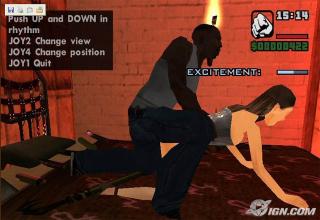This Post is Rated "M" for Mature
 As part of her big push for the center, Hillary Clinton has been spending a lot of time crowing about indecent video games. I guess she figures that the morality cop role, which has played so well for Bush, is worth emulating. Or maybe she really does think violent and sexual video games are one of the biggest problems our country is facing. Either option presents an unbecoming portrait of the woman likely to be the Democratic contender for the presidency in 2008.
As part of her big push for the center, Hillary Clinton has been spending a lot of time crowing about indecent video games. I guess she figures that the morality cop role, which has played so well for Bush, is worth emulating. Or maybe she really does think violent and sexual video games are one of the biggest problems our country is facing. Either option presents an unbecoming portrait of the woman likely to be the Democratic contender for the presidency in 2008.There’s been general grumbling about video game content for a while now, but the recent news about hidden sex scenes in Grand Theft Auto Vice City has really mobilized the forces of righteousness in Congress. Thankfully, some critics are answering back. An article in the current issues of the Economist does some serious debunking of the whole video games are corrupting our children argument.
The article makes a two-pronged attack on the contention that violent video games make for a violent culture, addressing this supposed phenomenon on an individual and societal level. The article notes a study conducted by University of Michigan researchers in which a test group played a violent video game "for a month, for an average of nearly two hours per day."
Game players, it turned out, were no more aggressive than the control group. Whether the participants had played games before, the number of hours spent gaming, and whether they liked violent movies or not, made no difference.
And the bigger picture.
But as Steven Johnson, a cultural critic, points out in a recent book, "Everything Bad Is Good for You", gaming is now so widespread that if it did make people more violent, it ought to be obvious. Instead, he notes, in America violent crime actually fell sharply in the 1990s, just as the use of video and computer games was taking off. Of course, it's possible that crime would have fallen by even more over the period had America not taken up video games; still, video gaming has clearly not turned America into a more violent place than it was.
Neither of these findings closes the case on whether or not video games inspire anti-social behavior, but at the very least, they should check some of the anti-game hysteria flying around.
One of the article’s conclusions, with which I wholeheartedly agree, is that video games are not so different from other forms of media. Certainly there are video games not suitable for children, but that fact doesn’t make video games uniquely dangerous. There are CDs and magazines equally unsuitable for children, and we take measures to keep them out of kids’ hands, as we do with video games via the rating system. Of course these measures fail sometimes, but that should hardly come as a shock to anyone who’s seen 12-year-old boys operate.
And I ask, what are the real consequences of kids seeing some violence or some sex? I know a politician could never say this, but does anybody honestly believe that a video game will turn an otherwise good kid bad? "Billy was a straight A student until we bought him that Grand Theft Auto. Now he’s packing a gun along with his lunch and calling his sister a ho."
My problem with Senator Clinton’s newfound cause is that the crisis of violent video games is a straw man erected for easy torching. Clinton comes out smelling like roses for taking on a problem that doesn’t exist, at least in terms of statistical evidence, and for pandering to conservative Americans’ fear that their values are under attack. The whole thing reeks of opportunism.
--Matthew McCoy
pic courtesy of ign.com


















<< Home